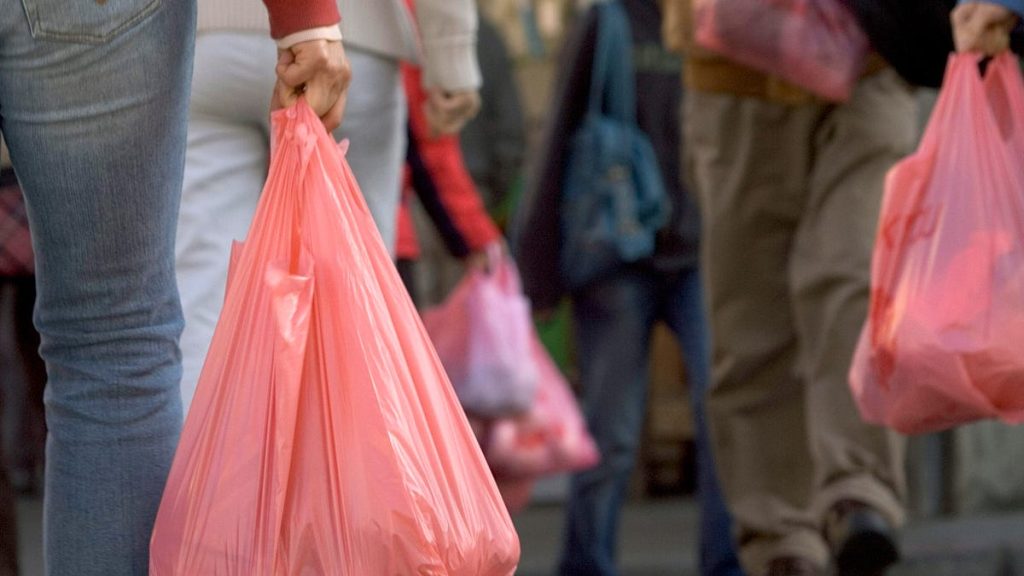California’s ban on plastic grocery bags is expanding to include all forms of plastic bags, with paper bags becoming the only option starting January 1, 2026. The original ban on thin plastic bags was implemented in California ten years ago, making it the first state to take such action. The goal of the ban is to reduce plastic pollution, as plastic bags are not easily recyclable and contribute significantly to environmental issues. Other states have followed suit, implementing similar bans or restrictions on single-use plastic bags to address the growing problem of plastic waste in oceans and landfills.
The use of plastic grocery bags has been identified as a major contributor to plastic pollution, with millions of bags ending up in the ocean each year. The expanded ban in California aims to eliminate all forms of plastic bags from grocery stores, encouraging customers to use reusable bags or opt for paper alternatives. State Senator Catherine Blakespear supported the expansion, pointing out that the current ban has not effectively reduced overall plastic use in California. According to a state study, the amount of plastic bags thrown away per person in California has actually increased over the years, highlighting the urgent need for stricter regulations.
The decision to expand the plastic bag ban in California comes in response to the failure of the current ban to significantly reduce plastic waste. Plastic bags continue to pose a threat to the environment, with millions of tons ending up in landfills and oceans every year. By eliminating all plastic bags from grocery stores, the state hopes to encourage more sustainable shopping habits and reduce the overall consumption of plastic products. The ban is part of a broader effort to address the global issue of plastic pollution and promote environmentally friendly practices.
While the expanded ban on plastic grocery bags in California will not take effect until 2026, the move has already generated support from environmental advocates and policymakers. By targeting single-use plastic bags, the state aims to curb the flow of plastic waste into oceans and landfills, thereby mitigating the environmental impact of plastic pollution. With other states also implementing similar measures, the campaign against plastic bags is gaining momentum and raising awareness about the need for sustainable alternatives. By phasing out plastic bags in favor of reusable or paper options, California is taking a proactive step towards a more eco-friendly future.
Despite the delay in implementation, the expanded ban on plastic grocery bags in California reflects a growing recognition of the urgent need to address plastic pollution. With millions of tons of plastic waste accumulating in landfills and oceans each year, stricter regulations on single-use plastic products are essential to protect the environment. By eliminating plastic bags from grocery stores, California is setting a precedent for other states to follow, signaling a shift towards more sustainable practices and responsible consumer behavior. The ban is a critical step towards reducing plastic pollution and safeguarding the planet for future generations.
In conclusion, California’s decision to expand its ban on plastic grocery bags is a significant development in the ongoing campaign against plastic pollution. By targeting all forms of plastic bags and promoting the use of reusable or paper alternatives, the state is taking a proactive stance on environmental conservation. With the ban set to take effect in 2026, California is sending a clear message about the importance of reducing plastic waste and protecting the planet. As other states consider similar measures, the momentum against plastic bags is growing, highlighting the need for collective action to address the global challenge of plastic pollution.


